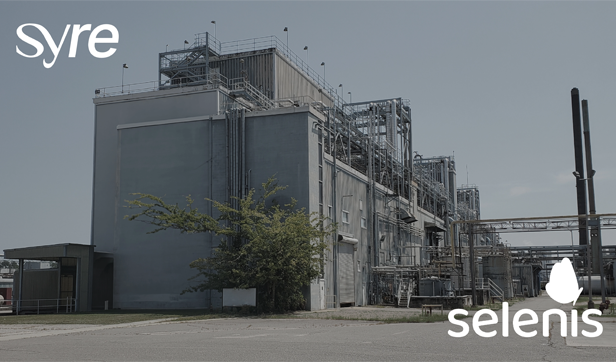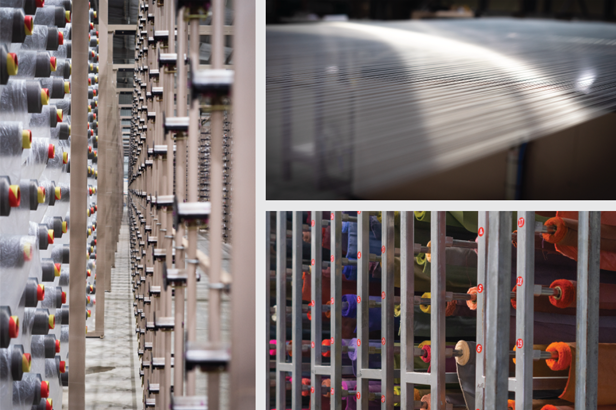Key Takeaways
• New Recycling Plant: Syre and Selenis are establishing a textile-to-textile polyester recycling plant in North Carolina, set to be operational by mid-2025.
• Traceability Partnership: Baichuan Resources Recycling has partnered with Aware to enhance supply chain traceability for its recycled polyester.
• Sustainable Materials: Canadian outdoor brand Arc’teryx will leverage Ambercycle’s cycora regenerated materials, made from end-of-life textiles, in its product lines starting in 2026.
Most recycled polyester is rPET (recycled polyethylene terephthalate), converting postconsumer plastic waste, such as plastic bottles, into a fiber that can become bags, jackets or other products. But textile-to-textile recycling of polyester poses a bigger challenge, particularly when dealing with the cotton-poly blends so popular in the printwear market. Despite the challenges, several companies are taking steps to scale up closed-loop recycling systems. Here are a few recent developments on the apparel recycling front.
New Textile-to-Textile Recycling Plant Coming to North Carolina

Syre and Selenis, both companies focused on advanced recycling technology, are in a strategic partnership to establish a textile-to-textile recycling plant in Cedar Creek, NC.
The companies say they will combine new tech in depolymerizing and polymerizing for textile-to-textile recycling all in one place, allowing for a cost-efficient, industrial-scale operation. This plant, expected to deliver up to 10,000 metric tons of circular polyester annually, is scheduled to be operational in mid-2025, with the aim of making its first commercial sales to customers later that year.
Syre launched in March, with backing from fast-fashion brand H&M Group, with a mission to establish multiple textile-to-textile “gigascale plants” producing circular polyester across the globe, reducing carbon emissions by up to 85% compared to production of oil-based virgin polyester.
“This is truly an important milestone on our journey to drive the great textile shift, with more than two years of planning now moving into action,” said Dennis Nobelius, Syre CEO. “We call this establishment a Blueprint Plant, since the work here will lay the foundation for Syre’s continued global expansion.”
The strategic partnership agreement will see the existing Selenis production plant in Cedar Creek, NC, expand as Syre builds an adjoining new plant to form a continuous production flow, covering processes from preprocessing depolymerization to polymerization and PET chips production, according to the two companies.
“The partnership is a strong statement in driving innovation in advanced recycling technologies that deliver real-world sustainability solutions and importantly a positive impact on the [life cycle analysis] of final products,” said Selenis CEO Duarte Gil. “We are excited about this journey with Syre, as it also allows us to further invest in the U.S. market with existing asset expansion and bring the benefits of new technologies closer to customers.”
Recycled Polyester Maker Partners With Aware for Supply Chain Traceability

A leading maker of recycled polyester yarns, with a specialty in dope dyeing, has partnered with Aware, a company that provides textile supply chain traceability solutions.
Founded in 2004, Baichuan Resources Recycling transforms postconsumer waste into high-quality yarns and fabrics for the apparel industry. To color the textiles, the company uses a process known as dope dyeing, an eco-friendly coloring process where color pigments are added to a polymer before it’s extruded into yarn. The method not only produces vibrant and consistent colors but also significantly reduces water consumption, chemical usage and energy, compared to traditional dyeing methods, according to Baichuan.
The new partnership with Aware “will provide a transformative solution that combines Baichuan’s premium recycled products with Aware’s live tracking and verification system, ensuring that all delivered products are 100% verifiable with real, authenticated data,” said Rogier van der Velde, co-owner of Baichuan.
Transparency and traceability have become increasingly important both in the promotional products industry and beyond. Aware, a Dutch company founded by two sustainable fashion experts, uses what it calls hybrid traceability technology, combining physical tracers with a public blockchain to create a virtual product passport that authenticates sustainable materials throughout the production process. It’s a solution that has attracted several suppliers in promo. Counselor Top 40 supplier Gemline (asi/56070), for example, has added Aware technology to several of its bag collections. Dutch supplier XD Connects has also partnered with Aware.
“Circularity starts with traceability,” said Koen Warmerdam, co-founder and brand director of Aware. He added that Baichuan shares his company’s vision of a more sustainable textile industry. “Together, we are establishing true end-to-end transparency, empowering brands to make responsible choices while ensuring their sustainability claims are authentic and verifiable.”
Canadian Outdoor Apparel Brand To Leverage Textile-to-Textile Recycled Materials
Canadian high-performance outdoor brand Arc’teryx has partnered with Ambercycle to use its cycora regenerated materials in its product lines beginning in 2026.
Cycora is a regenerated polyester created from end-of-life textiles. Ambercycle says it uses a proprietary molecular regeneration technology to turn discarded polyester feedstock into a high-performance material that reproduces the quality of virgin-grade polyester while reducing industry greenhouse gas emissions.
Arc’teryx’s material commitment “marks a pivotal step toward commercializing” Ambercycle’s technology and “making cycora more accessible across the apparel supply chain,” according to the companies. Earlier this year, performance apparel brand Athleta, owned by Gap Inc., announced similar plans to use cycora at scale in 2026.
“As an innovation-driven company, Ambercycle is always exploring new frontiers in material regeneration and circularity,” said Shay Sethi, CEO of Ambercycle. “Partnering with a forward-thinking leader like Arc’teryx allows both teams to challenge conventional approaches and drive even greater impact. Together, we are exploring the potential for a truly circular future.”



